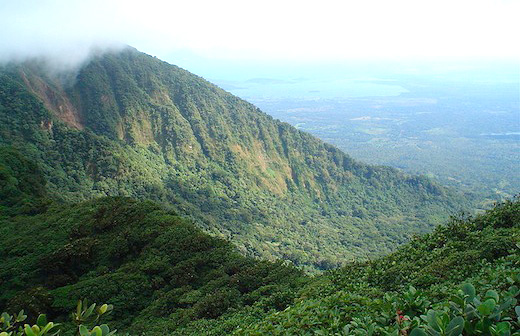
Rain forests around the world are rapidly disappearing due to illegal logging, the growth of palm oil plantations, the clearance for cattle ranching and other forms of commercial agriculture. Now scientists warn of another threat to the rain forests of Central America, especially those in Nicaragua, Guatemala, Honduras and some of their neighbors: the U.S. “war on drugs.” This is according to a news report in Jan. 30 Science Daily, “Drug trafficking leads to deforestation in Central America.”
It seems that the drug war in Mexico, fueled by the misguided anti-drug policies of the United States and the Mexican governments (in which both rely on military action and violence instead of legalization and reform) has driven the drug gangs deep into the remotest areas of the jungles of Central America, especially into supposedly protected regions where they are destroying large areas of the virgin forests to build airstrips, roads, and storage facilities to facilitate their drug activities.
They are also constructing “agribusinesses” in order to “launder their drug profits.” It is almost impossible to believe that all this activity could be going on under the noses of the United States and its allies in the so-called war on drugs. Such blatant activity appears to be protected due to the graft and corruption of all the parties involved. This has been going on for years, according to Kendra McSweeney, a scientist at Ohio State University whose research, along with others, was the basis of the Science Daily report.
“In response to the crackdown in Mexico,” she said, “drug traffickers began moving south into Central America around 2007 to find new routes through remote areas to move their drugs from South America and get them into the United States. When the drug traffickers moved in, they brought ecological devastation with them.”
The indigenous Amerindian people, who live in the forests, suffer as a result of the arrival of the drug dealers who strip the forest for their roads and landing areas for planes. Drug money is used to bribe government officials to turn a blind eye to the drug dealers as well as the deforestation activities. Ranchers, illegal loggers and land speculators, according to the article, increase their activities, at the expense of the forest people. The influx of drug money and criminal enterprises stimulates the need to launder their ill-gotten profits with so-called legitimate businesses.
“Drug policies,” McSweeney said, “are conservation policies, whether we realize it or not.”
Besides the death and destruction to people, innocent and guilty alike, brought about by U.S. policies, the damage and destruction of the rain forests is a major ecological problem. “U.S. led militarized interdiction,” McSweeney concluded, drove traffickers “to operate in ever-more remote, biodiverse ecosystems. Reforming drug policies could alleviate some of the pressures on Central America’s disappearing forests.”
For the reasons revealed in this news article it is ever more important that the failed and useless U.S. war on drugs, which has become a war on people and nature, be curtailed and ended; that rational policies be adopted to deal with the problems of addiction and the social conditions responsible for it.
Photo: The highest regions of Mombacho Volcano, near the city of Granada, Nicaragua, is home to a cloud forest and dwarf forest, which contains flora and fauna that are unique to the volcano (Keith/Wikimedia).












Comments